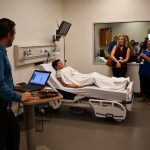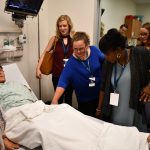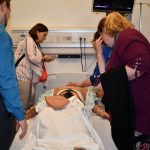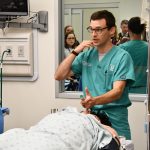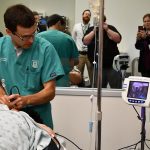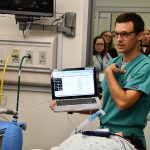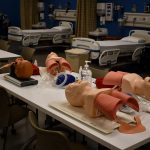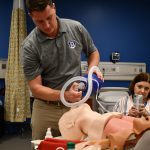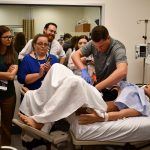2018-2019 STEM Teacher Academy Recognition Ceremony
This year’s STEM Teacher Academy focused on using engineering to help children with limb reduction defects. The Academy began, August 2018, at Lockheed Martin Aeronautics Company Marietta, where teachers learned how the company is using engineering to help design and construct aircraft for our military. Teachers engaged in tours of the facility, participated in hands-on activities, and experienced Lockheed’s new Hercules Full Mission Simulator.
The next three STEM Teacher Academy sessions focused on using the Engineering Design Process to design and build prosthetic hands in individual grade-level cohorts. In an effort to strengthen their science content knowledge, teachers learned about the various types of upper limb reductions and selected a type to design their prosthetic. To strengthen math content knowledge, teachers completed scaling exercises to help choose the best design based on the type of defect. Teachers then created computer aided designs of their prosthetic hands in the Open Source TinkerCad Software and 3-D printed and assembled their components. Finally, each grade-level cohort worked together to assemble and test their prosthetic hands. Throughout this process, teachers learned various strategies on how to create a STEM culture within their schools. In addition, we shared various practical STEM technologies with the teachers that could be used in their classrooms.
Overall, this year’s cohort of teachers learned how to join altruism, using standards-based activities, with their instruction. They engaged in hands-on work at every session, which they can replicate and share at their schools across the state of Georgia.
This year’s recognition ceremony was held at the Georgia Cancer Center at Augusta University and provided a noteworthy conclusion to our overall theme, “Cracking Codes to Engineering Solutions”. Most importantly this opportunity allowed our teachers to explore engineering and technology in STEM related careers.
Below are some of the photos that were taken during our tour of the Georgia Cancer Center at Augusta University and the Medical College of Georgia.

